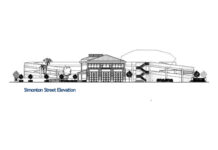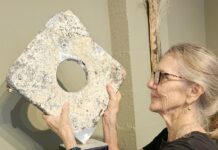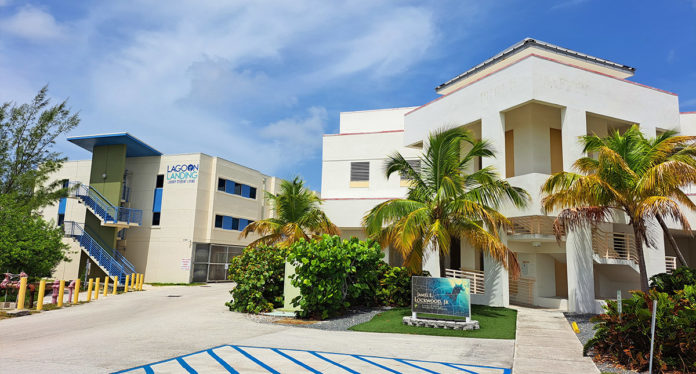
Have you been to the College of the Florida Keys lately? Cool things are happening on the Key West campus — from aquaculture and alternative energy, to boat building and marine repair. From culinary training and hospitality management to law enforcement, nursing, a new dorm and construction of a new charter high school on campus.
The Keys Weekly spent a recent morning touring the campus with Jonathan “Dr. G” Gueverra, the college president.
“The college has to remain relevant to the community it serves,” he said, adding that the school now can train Florida Fish & Wildlife officers at its Key West campus. “Before, they had to do all their training in Tallahassee. But now they can do it here, have their schooling sponsored by the agency, and be committed to working here in the Keys.”
Growing the local workforce is an overarching goal for Gueverra, who points to the college’s culinary, hospitality, marine repair and manufacturing, aquaculture, dive technology and alternative energy programs as ongoing examples.
“We’re also now licensed to sell the skiffs that are made by our marine fiberglass manufacturing classes. One just sold for $8,000,” he said, before pointing out one of the newest projects in alternative energy.
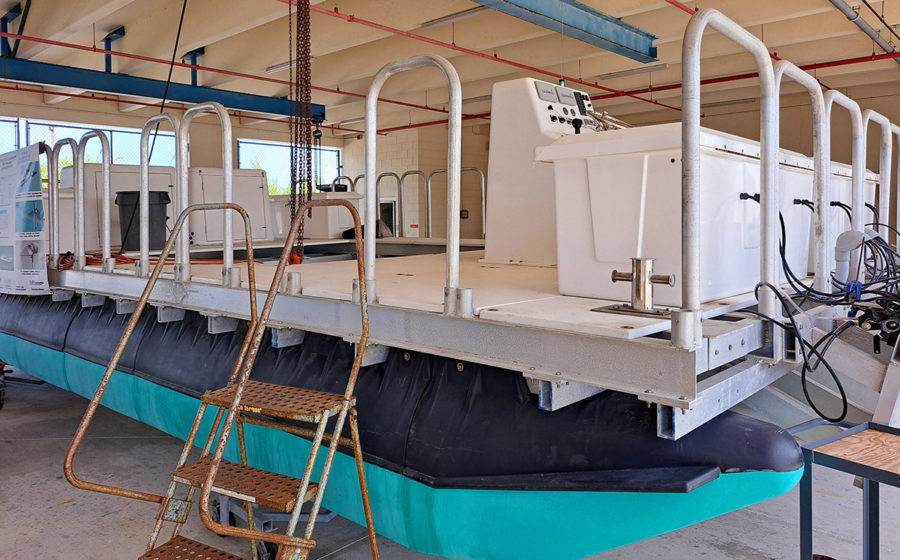
Water power
What looks like a large, flat pontoon boat is actually a hydrokinetic simulator created by the college’s chief science and research officer Patrick Rice and students in his engineering technology-renewable energy technician program.
Gueverra pointed out the hydrokinetic simulator that soon will be installed in the college’s lagoon, which is 170 meters long, 110 meters wide, and 10 meters deep. The simulator will allow renewable energy businesses and engineers to test their prototype turbines to measure hydrokinetic power capabilities.
“We are surrounded by hydrokinetic power. We’ve got plenty of wind—sometimes way more than we want—and we’re the sunshine state. So it just makes sense to have a renewable energy program down here. The whole goal is to build the program, and, at the same time, have students help us build the program and build those industries,” Rice said in a 2019 interview after receiving an advanced technological education grant to help launch the program.
Entrepreneurs and university researchers are working on ways to capture tidal energy, wave energy, river flow, and currents between the Atlantic Ocean and Gulf of Mexico. Rice hopes to make College of the Florida Keys an integral part of that research.
“We’re hopeful we can be considered a real, world-class test facility for hydrokinetic prototypes,” he said. A start-up company and university research team have already agreed to use the college’s facilities and work with students while testing their new products.
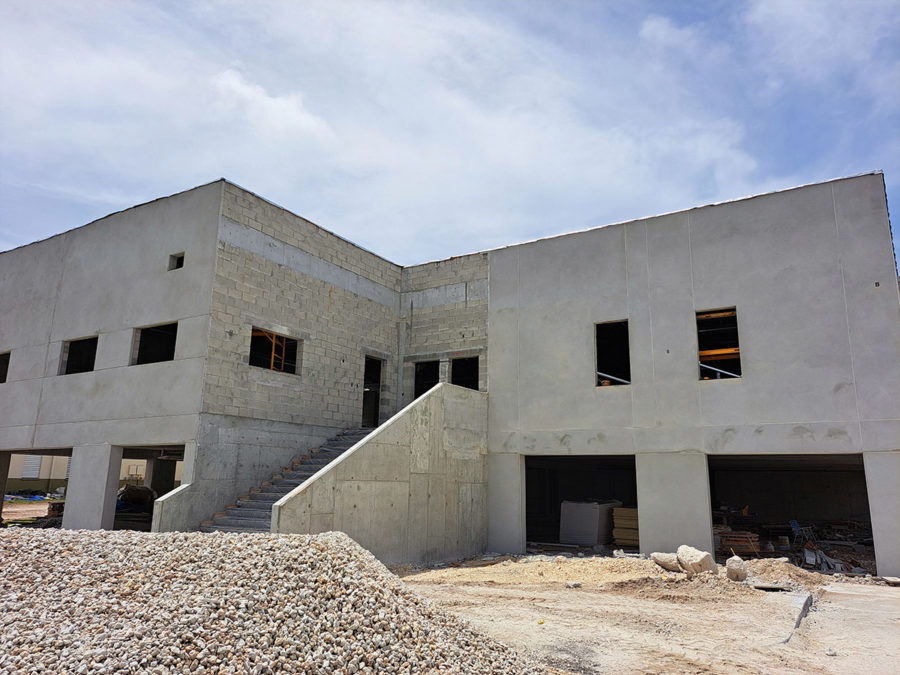
Aquaculture
The college is working on an aquaculture project to cultivate black grouper while conducting cutting-edge research on the fishery.
“It’s all about renewable resources,” Gueverra said. “We’re also working on cultivating seaweed that, when dried and fed to cattle, produces significantly less methane gas. And we’re farming oysters, whose shells are used for carbon sequestration, or removing and storing carbon.”
Dorm life
The College of the Florida Keys currently houses 100 students in its waterfront Lagoon Landing dorm building. Gueverra is planning to demolish the neighboring Public Safety building, and replace it with a second residential building that will include dorms for 240 students and 25 employee housing apartments.
“It will make us more economically viable,” he said. “Fifteen percent of our students come from outside Monroe County. In this housing crisis, where will they live? If they can’t afford to live in town, our enrollment will drop.”
He hopes to raise about half of the construction funding “so the college will have skin in the game. If a private developer builds the whole thing, then we have no control over how high the rents can be.”
Charter high school
The biggest construction project on campus will become the new charter high school on the college campus, CFK Academy. It is slated to open in the fall of 2023 with about 85 initial students who will be able to graduate with both a high school diploma and an associate’s degree.
The new building is more than academic for Gueverra, who stepped up to the plate when construction costs increased from $3 million to $5 million.
“We had to eliminate some things from the budget, including landscaping,” he said. “So now a whole section of my yard at home is dedicated to growing plants for the charter high school’s landscaping.”
